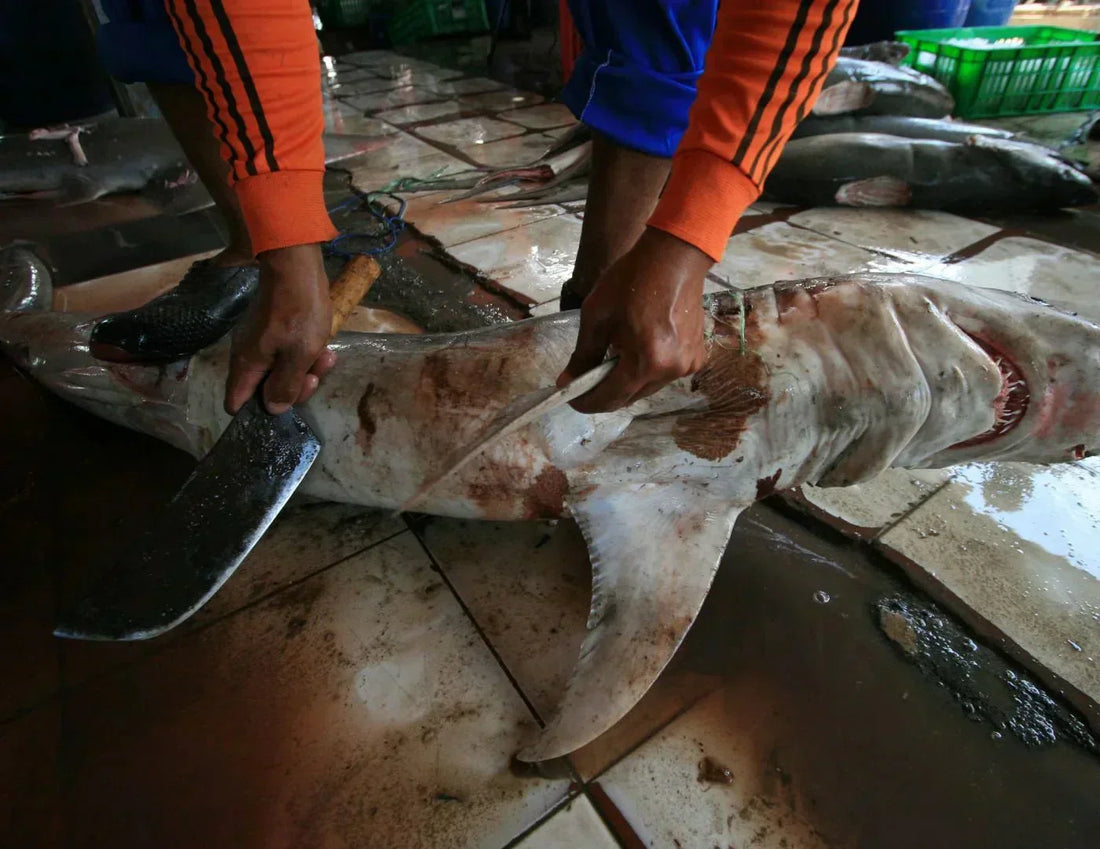
Sharks in Costa Rica: Ecological Role, Threats, and Conservation
BY NAMUBAKShare
The Importance of Sharks
Sharks are the top predators in the ocean's food chain and play a critical role in maintaining balance in marine ecosystems. These keystone species not only regulate the populations of animals below them in the food chain, but are also critical indicators of ocean health.
Ecosystem Regulation
Sharks help ensure species diversity by removing weaker or sick individuals and maintaining a balance among competitors . Furthermore, by controlling the spatial habitat of other species, they directly influence their feeding patterns. This cascading effect helps preserve the balance of critical habitats, such as coral reefs and kelp beds.
Without sharks, ecosystems begin to become unbalanced. For example, The absence of sharks on coral reefs has led to a proliferation of predators such as groupers, which in turn feed on herbivores essential to controlling the growth of macroalgae. These algae can overwhelm coral, hindering their survival and transforming reef ecosystems into algae-dominated areas.
Contribution After Life
Even after their deaths, sharks remain an integral part of the marine ecosystem. Deep-sea research off the coast of Angola showed how shark and ray carcasses provide food for communities of scavengers on the seafloor, demonstrating how sharks are part of a true “blue circle of life.”
Impact on Coral Reefs and Fisheries
The loss of sharks has contributed to the decline of coral reefs , kelp beds and commercial fisheries. Their role in regulating herbivores is essential for maintaining the health of corals, which are crucial not only for marine biodiversity but also for coastal protection and the livelihood of human communities.
In short, sharks are much more than predators: they are guardians of the oceans' balance. Ensuring their conservation is an urgent task not only to protect biodiversity, but also to mitigate the effects of climate change and preserve the ecosystem services that the seas provide us.

Shark Fishing in Costa Rica: An Alarming Reality
Unlike other fish, sharks grow slowly, mature sexually late, and have few offspring, making them extremely vulnerable to overfishing. Currently, two types of fisheries affect these species:
- Targeted Fishing: It specifically seeks to capture sharks for commercialization.
- Non-Directed Fishing: Sharks accidentally caught along with other species, often discarded without being used.
Globally, shark fishing generates nearly $630 million annually. However, this activity has led to the collapse of many shark populations, affecting both the environment and the fishing economy.

International Conservation and Challenges in Costa Rica
In 2003, sharks were listed on Appendix II of the CITES Convention, which regulates their trade to prevent exploitation incompatible with their survival. In Costa Rica, a country with a long history of marine conservation, 97 species of sharks and rays have been identified, 56% of which are at risk of extinction . Iconic species such as the hammerhead shark, silky shark, and thresher shark are critically endangered due to overfishing , despite being protected by international agreements.
Shark Protection in Costa Rica: A Slow Process
Despite its reputation as a conservation leader , Costa Rica faces serious criticism for its handling of shark protection. The country ranks as the fifth largest exporter of shark fins in the world , which has generated a significant environmental impact.
In 2022, Costa Rica did not support a key proposal to include sharks in the family Carcharhinidae in CITES Appendix II, which was a disappointment for the environmental sector. Furthermore, in 2023, the possible inclusion of sharks in the basic food basket was reported, a decision that could normalize their exploitation.

Sharks and the Economy
The shark is, however, also a incredible and very important source of income through the ecotourism.
Some countries whose economies depend heavily on ecotourism They have understood the value of shark conservation and have moved toward creating shark sanctuaries and marine protected areas.
Every year, around 600,000 divers travel the world to witness these magnificent creatures in their natural environment. In Australia alone, in 2014, Shark tourism generated at least 47 million Australian dollars to the national economy.

On the other hand, the economy of the Maldives, a small island nation in South Asia, is driven by tourism, with diving and snorkeling being the most popular activities in the country. Shark divers alone contributed over US$65 million to their local economy in 2016! Furthermore, a survey revealed that 74% of travelers come to the Maldives motivated by shark diving and “They wouldn’t come back if there were no live sharks.” 
Shark conservation is primarily driven by the economic rationale they represent. Socioeconomic studies have shown that 71% of divers are willing to pay more for their stay or cruise to see sharks than any other species.
Recent studies have shown that the market value of a live shark raises more money over its lifetime than a shark that is caught and sold.
From the fisherman to the exporter, a set of shark fins from the Carcharhinidae family sells for around 50 USD, while in a tourist area, A live shark contributes approximately $75 per day to the local economy.
The Shark: A Species That Needs Our Help
Sharks today are being pushed to the brink of extinction. More than 80 million sharks are caught each year, and populations have declined alarmingly in recent years. It's critical that we take action today and help conserve them. That's why we want to share this with you. 5 ways you can protect sharks from your home :
- Don't eat shark fin soup. Its consumption is the main cause of shark extinction and overhunting.
-
Understand why they are essential for the balance of marine ecosystems.
- Do not encourage the purchase of souvenirs that come from sharks.
- Find out what measures exist in your country to protect sharks.
- Join an association dedicated to protecting sharks.

